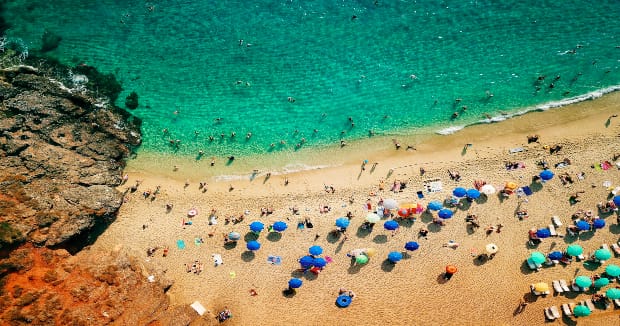
Half a million Russians lose out on a Turkish beach holiday
Moscow announced a ban on flights to Istanbul last week due to the deteriorating coronavirus situation in Turkey, ruining the holiday plans of hundreds of thousands of ordinary Russians. Turkey has always been one of the most popular destinations for Russian tourists and, during the pandemic, it has been one of the only foreign destinations not made inaccessible by travel restrictions.
- There were repeated official hints that a flight ban was in the offing, but the decision was only formally announced last Monday when the government said all charter flights would be cancelled until June 1. A similar ban was imposed on flights to Tanzania, but that has far less impact.
- During the pandemic, Istanbul has been a hub for Russians wanting to fly abroad: even though Russia had no direct air links with most countries, it was possible to make onward connections from Istanbul. But Turkey is also a popular destination in its own right.
- It’s hard to overstate the impact of the decision: about 600,000 Russians saw their holidays cancelled, costing tour operators up to $481 million. Many ordinary people will never get their money back: according to the law, tour operators are not required to refund the full cost. Long queues built up at the offices of Turkish Airlines in Moscow last week as people were unable to get answers from overstretched call centers.
- The official reason for the ban is Turkey’s rising coronavirus infection rate. Anna Popova, the head of the public health watchdog in charge of Russia’s pandemic response, said 80 percent of the 25,000 Russians who tested positive for coronavirus on returning from abroad since last summer came from Turkey. While this is true, it’s also true that only a handful of other countries have been open to Russian holidaymakers, and they are all more expensive and less popular.
- However, many saw a political motive in the ‘closure of Turkey’. Talk of the ban first emerged on the eve of Turkish President Recep Erdogan’s meeting with Ukrainian President Volodymyr Zelensky amid rising tensions in Eastern Ukraine. During the meeting itself, Erdogan said Turkey would never recognize Russia’s 2014 annexation of Crimea.
- And it’s important to remember that Russia has almost no anti-pandemic restrictions in place. Bars and restaurants operate as normal, likewise planes and trains. There is no social distancing on public transport (at best, some passengers might have a mask below their chins). Coronavirus cases are gradually increasing (Russia recorded 9,300 new cases Saturday, the highest for three weeks), and fatality rates have not declined since the peak of infections in late 2020. On top of this, Russia’s vaccine programme lags far behind most Western countries.
Why the world should care
For Europeans living under strict lockdowns, the idea of going on holiday to Turkey might seem crazy. But Russians have been told for months that their government has ‘beaten coronavirus’. And the ban on Turkish flights illustrates how the authorities can make decisions affecting hundreds of thousands of people behind closed doors and based on obscure reasoning. This leaves many ordinary people — not to mention businesses — in a state of continuous uncertainty, even on a day-to-day basis.




